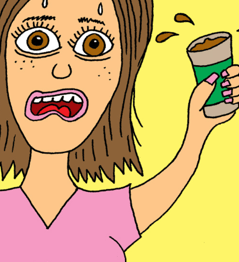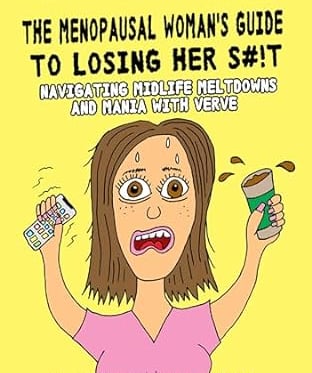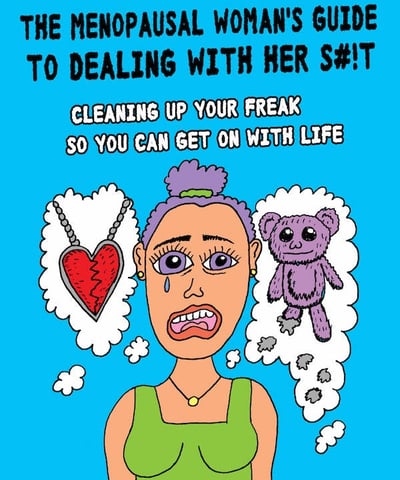Recognizing Menopause Psychosis & Symptoms
Menopause-associated psychosis encompasses psychotic disorders that emerge during menopause. These disorders are often under-studied and poorly understood.
MENOPAUSAL MENTAL HEALTHMENOPAUSAL SYMPTOMS
Kennerly Clay
7/5/20243 min read
What is menopausal psychosis?
Menopause, derived from the Greek words “meno” (month) and “pausis” (cessation), marks the end of a woman's menstrual cycles and fertility, typically occurring between ages 40 and 55.
Menopause can be a risk factor for psychosis, particularly late-onset schizophrenia, where the first episode occurs after age 40. Studies show that midlife onset schizophrenia is more common in women, possibly due to hormonal changes, especially the decline in estrogen, which has a protective effect on the brain. Although actual psychosis is rare during this stage of life, menopause and mental health challenges often go hand in hand, making coping with menopause depression an essential part of the journey.
This transition brings various physical and emotional changes due to hormonal fluctuations. Common symptoms include mood swings, anxiety, sleep disturbances, and hot flashes, lasting on average for five years but potentially beginning up to eight years before menopause officially starts.


If you or someone you know is in crisis, please call 988, the Suicide & Crisis Lifeline in the United States.
What are menopause psychosis symptoms?
Menopause psychosis is a rare but serious mental health condition that can occur during menopause. Here are some of the symptoms:
Hallucinations - Seeing, hearing, or feeling things that are not there.
Delusions - Strongly held false beliefs that are not based in reality.
Severe mood swings - Extreme and rapid changes in mood.
Paranoia - An irrational fear that others are plotting against you.
Disorganized thinking - Difficulty organizing thoughts or connecting them logically.
Confusion - Trouble understanding or making sense of the environment.
Memory issues - Problems with short-term memory or recalling recent events.
Severe anxiety or agitation - Intense feelings of nervousness or restlessness.
Sleep disturbances - Severe insomnia or disrupted sleep patterns.
Social withdrawal - Isolating oneself from family, friends, and social activities.
Some symptoms of menopause-associated psychosis may imitate other menopausal symptoms like depression, anxiety, mood swings and brain fog - all combined, often leading women in menopause to "feel like they're going crazy" - so it's important to see a healthcare provider who can accurately assess your symptoms. A health specialist may also recommend certain types of testing to help diagnose your condition.
Menopause survival tip sheet
The Menopause Madness Relief Kit is a hand-curated list of menopausal survival tips from women who've been to hell and back.


Menopause-associated psychosis (MAP)
The term menopause-associated psychosis (MAP) encompasses psychotic disorders that emerge during the menopause transition. These disorders are often under-studied and poorly understood, presenting unique challenges in diagnosis and treatment due to hormonal fluctuations and other midlife stressors.
Case study: A glimpse into MAP
In a recent report, a 51-year-old woman with a history of depression and anxiety experienced her first psychotic episode during menopause. Her symptoms included insomnia, disorganized behavior, and delusions, such as believing she was being watched through cameras. Despite initial treatment, her symptoms persisted, leading to multiple hospitalizations and a complex treatment regimen involving antipsychotics and antidepressants.
Understanding the role of estrogen
Estrogen's decline during menopause is a significant factor in MAP. Estrogen interacts with brain signaling pathways involved in schizophrenia, affecting dopamine, acetylcholine, and glutamate levels, which are crucial for mood, memory, and cognitive functions. This hormonal change increases the vulnerability to psychotic symptoms in menopausal women.
Challenges in treating MAP
Treating MAP is complex due to the interplay of hormonal changes and the specific needs of menopausal women. Antipsychotic medications can exacerbate menopause symptoms and have more side effects in women, such as weight gain, cardiovascular issues, and bone health problems. Therefore, treatments need to be carefully tailored, and hormone replacement therapy (HRT) or selective estrogen receptor modulators (SERMs) may be considered to alleviate symptoms and improve outcomes.
A call for better understanding and treatment
Menopause is a challenging time for women, made more complex by the potential onset of psychosis. Understanding the hormonal and physiological changes that contribute to MAP is crucial for developing effective treatments. More research and clinical trials focusing on midlife women are needed to provide better guidelines and support for those affected by this condition.
Wanna talk more about menopausal psychosis?
Books for women who are losing it in menopause
Mental Health
Losing your mind in peri/menopause?
The menopausal woman's guide series
Financial Health
Had enough of financial insanity?
Personal Growth
Triggers? Old stuff kicking up?
Related topics
Explore helpful articles, tips, and advice for women who are losing their shit in menopause.
Community
Stay Connected
© 2024. Eclectic Content, Inc. All rights reserved.






